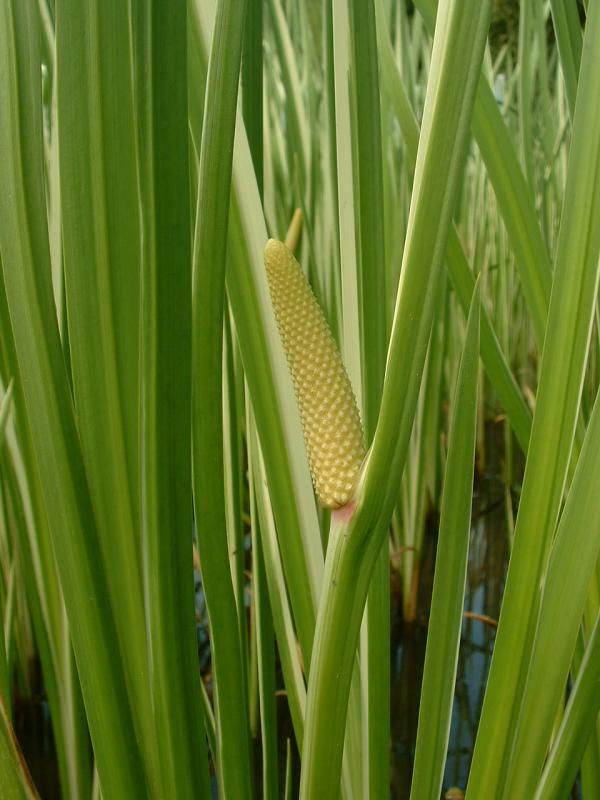Calamus (Sweet Flag)

The Latin for cane and in Hebrew Kaneh. It is mentioned (Exodus 30:23) as one of the ingredients in the holy anointing oil, one of the sweet scents and among the articles sold in the Markets of Tyre (Ezek. 27:19). The word designates an Oriental plant called the "sweet flag," the Acorus calamus of Linnaeus. It is elsewhere called "sweet cane" (Isaiah 43:24; Jeremiah 6:20).
It has an aromatic smell, and when its knotted stalk is cut and dried and reduced to powder, it forms an ingredient in the most precious perfumes. It was not a native of Palestine, but was imported from Arabia or from India.
Calamus essential oil possesses many healing and beneficial properties. However, it also has some harmful side effects if used incorrectly. The plant itself is not toxic.
Uses: Antioxidant – it has got powerful antioxidant capacity.
Cicatrizant – It is a wound healer.
Nervine – It has a stimulatory effect on the nervous system.
Antimicrobial – effective against many species of bacteria, fungi and viruses.
Insecticide – repels many insects, like cattle ticks.Anti-
rheumatic – provides relief in rheumatoid arthritis.
Anti-spasmodic – prevents the occurrence of spasms.
Nootropic – It is a memory booster.Tranquilizer and
Sedative – It provides relaxation and induces sleep.
Cephalic – It improves the functioning of the brain and nervous system.
Anti-epileptic – provides relief from epilepsy.
Anti-inflammatory – reduces inflammation, specially in the gastrointestinal tract.
Circulant – Improves blood circulation.
Hypothermic – It reduces body’s core temperature. This is helpful in fevers.
